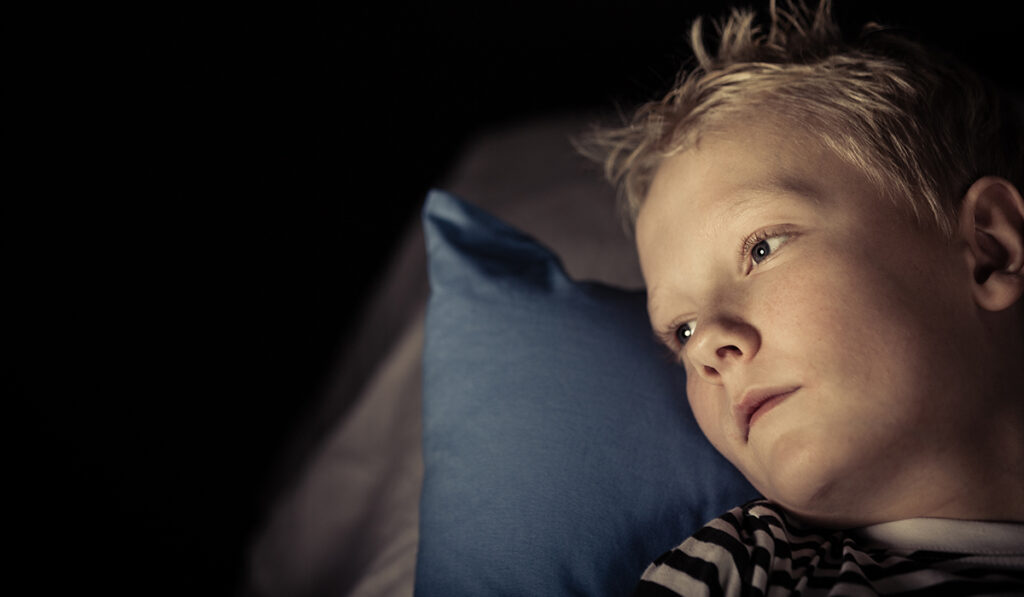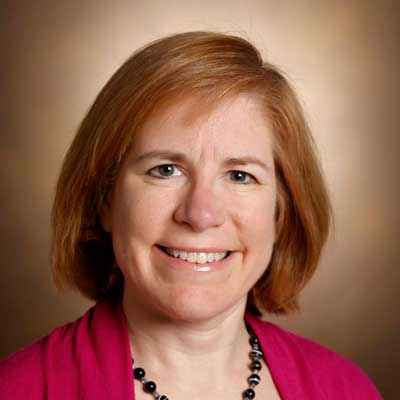A newly revised pathway for addressing interrupted nighttime sleep in children on the autism spectrum shows efficacy for both medical and behavioral interventions – but no singular approach stood far above the others.
An expert committee updated the 2012 pathway guidelines that provide guidance for treating sleep problems in that population.
“When it comes to interrupted sleep, there are no magic bullets, but sleep is so important – and so are night wakings,” said Beth Malow, M.D., Burry Chair in Cognitive Childhood Development at Vanderbilt University Medical Center.
“When it comes to interrupted sleep, there are no magic bullets, but sleep is so important – and so are night wakings.”
A family’s quality of life suffers when children are awake during the night.
“The problem is strongly associated with children being more irritable, hyperactive and physically aggressive during the day, and with mothers having higher stress levels and worse mental health,” she said.
The 2012 pathway was valuable for clinicians and caregivers, Malow explained, but it had focused primarily on falling asleep without much attention to subsequent awakenings.
An Extremely Common Problem
About one in 36 children have autism spectrum disorder (ASD). Among affected youngsters aged two to five, sleep problems are approximately twice as common as they are in the general population and often persist into adolescence. Fifty to 80-percent of parents of children with ASD report that their children have sleep problems.
Parental report is the measure most often used to gauge the extent of night waking. Firm data on the occurrence of night wakings in children with ASD are hard to come by because the issue is generally not well studied.
“Sleep is so important, and there are interventions that can help. We need to do much more to communicate with families about kids’ sleep.”
“The available evidence shows that at least 34 percent of children with autism spectrum disorder have night wakings either alone or in combination with delayed sleep onset,” the authors wrote. In one Autism Treatment Network-related sample, the prevalence of occasional or frequent night wakings was fifty percent.
Addressing Medical Issues
“The revised pathway emphasizes the importance of addressing medical concerns that may be contributing to the interrupted sleep,” Malow said. “If someone has apnea or reflux causing them to wake up, treating that problem can really help.”
Other conditions associated with night wakings include constipation, restless leg syndrome, and seizures, she explained.
No Standout Medication
The researchers who created the new pathway studied 26 prior publications about treatments for night wakings. None of the 26 had evidence graded as “high” by the GRADE methodology, a widely accepted system for evaluating studies.
Melatonin was the most common medication studied, accounting for half of the 26 papers. In the largest of those studies, with 185 subjects, controlled-release melatonin did lead to a significant decrease in night wakings.
Donepezil, L-carnosine, and clonidine are among the other medicines used for to encourage a full night of sleep.
“Some drugs do seem more helpful than others, but there’s no magic bullet,” Malow said. “It may be best to explain to parents that we need to evaluate each drug on a case-by-case basis, if we need medication at all.”
Behavioral Interventions Can Help
Several behavioral interventions proved somewhat effective in studies, including positive bedtime routines, behavioral therapy, and training for the child.
In a study with 68 children, yoga proved beneficial.
“In 2012, there wasn’t as much evidence in support of behavioral interventions as we found recently. It’s not always necessary to use medications,” Malow said.
Sleep Problems Deserve Discussion
Both parents and clinicians often feel time-pressed during office visits, and may stint the time allotted to discuss sleep, Malow explained.
“But sleep is so important, and there are interventions that can help. We need to do much more to communicate with families about kids’ sleep,” Malow said.






